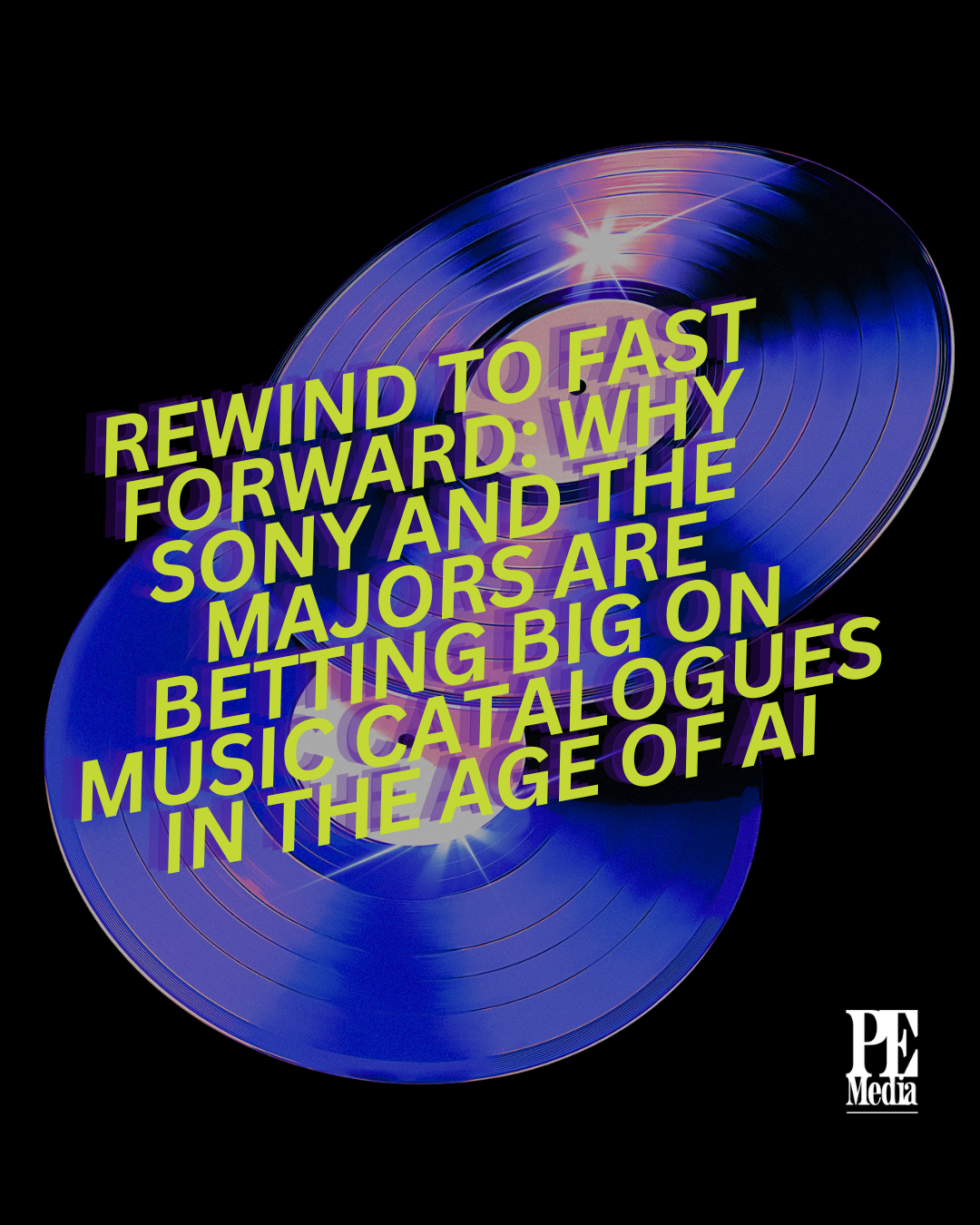REWIND TO FAST FORWARD: Why Sony and the Majors Are Betting Big on Music Catalogues in the Age of AI
dj5rivers · Digital Feature · July 7, 2025
Toronto, ON
When Sony Music, Universal, and private equity-backed firms like Hipgnosis spend hundreds of millions acquiring classic music catalogues, they’re buying the creative infrastructure of the future. What may look like nostalgia-driven deals are in fact, strategic plays for control in a rapidly evolving digital economy. Music catalogues, especially those rich with decades of iconic material, are now seen as prime assets in the age of artificial intelligence, immersive tech, and synthetic media. They're no longer just streams and syncs; they’re training data, licensing blueprints, and remixable source code for the next wave of music creation.
Catalogues Are the New Data Gold
Just as data fuels AI, music catalogues fuel the future of generative sound. When a company owns both the master and publishing rights, it gains the legal freedom to train AI on those recordings, feeding algorithms that can generate songs “in the style of” Marvin Gaye, Nirvana, or Aretha Franklin. Imagine licensing not just a sample of Prince, but an entirely new, AI-generated vocal, crafted from his existing work, legally cleared, and infinitely scalable.
These assets serve the old music industry and are now powering voice cloning, virtual performers, and AI-assisted songwriting engines. In a world where AI DJs, holograms, and metaverse bands are becoming mainstream, catalogue ownership offers creative and commercial control over how cultural memory is reused and remixed.Reproductive Rights: Music’s Next Revenue Stream
Beyond traditional licensing, companies are now monetizing reproductive rights; the ability to regenerate or reimagine music using AI and immersive tools. Owning a catalogue means a company can:Launch holographic performances of legacy artistsCreate voice-cloned duets with contemporary starsLicense AI-assisted covers for games, film, or AR platformsDevelop interactive concerts in the metaverse
The future of AI in music outside of the production tools work to protect what was made and ensure infastructure is built for what comes next. And in many cases, large big three companies that own legacy catalogues can roll out these experiences without negotiating with artists or estates for every use.RepLegacy as Leverage: Cultural Power in the Digital Age
Music is memory.
It’s emotional infrastructure.
And in an AI-driven future, the past becomes a strategic asset. Ownership of a catalogue lets you decide: Whether Whitney Houston returns as a hologram in Paris; Whether Nirvana’s style is used in a Netflix biopic soundtrack; Whether a Marvin Gaye vocal is featured in an AI-generated duet on TikTok. This is curation at the level of legacy, and companies like Sony are quietly becoming the cultural gatekeepers of how we remember, reinterpret, and re-experience music history. THE NEW MONOPOLY IT SEEMS.Control = Cultural Power
Catalogue control gives companies enormous influence over how iconic voices appear in new media. They can approve or deny samples in hip-hop, determine whether a classic song makes a cameo in a Netflix series, or choose which era-defining voices make it into AI-generated virtual worlds.
The strategy here is simple: own the past to shape the future. Because in this new era, catalogue ownership means rights to a recording, it means owning the style, emotion, and identity of the artists who defined generations.
What we’re seeing is a shift from music as a product to music as programmable IP.
These acquisitions are about preparing for a future where AI recommends music, helps create it, and dictates who gets shared. Where virtual artists go on tour. Where old voices sing new songs. And where cultural memory is preserved, archived, re-coded, remixed, and re-sold.
In this new creative economy, the past is the platform, and whoever owns it will have the loudest voice in the future of sound. Not sure if this is the most ethical, effective or creative way to do it, but it's happeneing, whether we keep up or not.